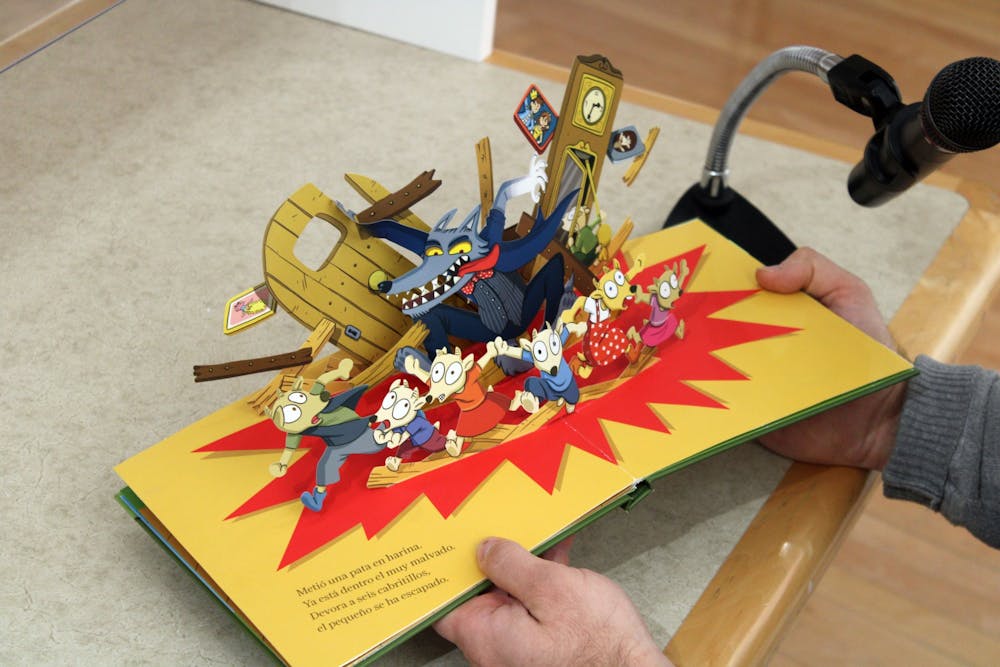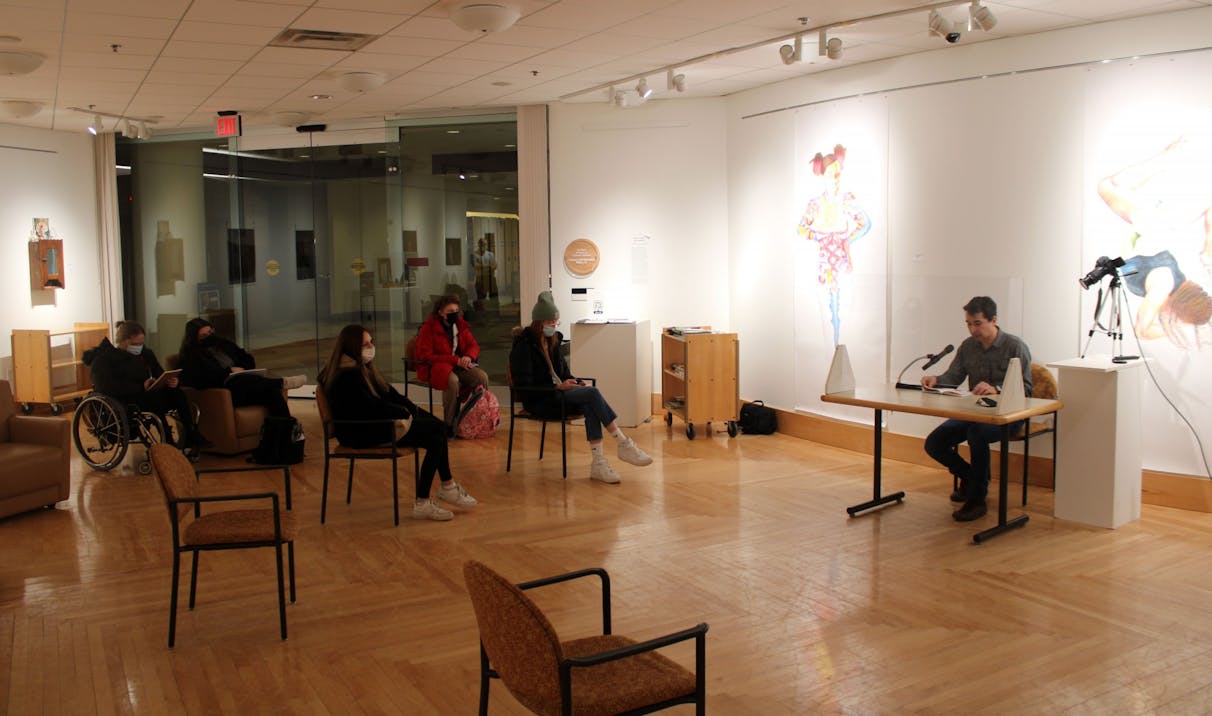Clarke Historical Library hosts children's book reading in 18 languages

The Clarke Historical Library celebrated multilingual students, faculty and staff with children's books from around the world read in 18 different languages.
For the seventh year in a row, volunteers with foreign language skills read from the library's collection of children's books in the all-day event on Feb. 24 in the Park Library's Baber Room. The event this year returned to an in-person format after it was held virtually in 2021 due to the pandemic.
"To me, having another language is a skill," archivist for University Digital Records, Bryan Whitledge said. "We have this wealth of very skilled individuals on campus who can read all these books. This is a real skill and I think we should celebrate it."
Physics faculty member Georgios Perdikakis read a Greek book by Eugenios Trivizas during the event. The story is about an elephant named Loukoulos who loves eating poppies so much that he turns red.
Perdikakis, who is from Greece, said the event was a good way to share different heritages.

"For me, it was interesting mostly to listen to the other languages," Perdikakis said. "It's interesting to compare how the language is different and how the different authors write the story. I think it's a good cultural experience."
Whitledge said complex themes portrayed in children's books can sometimes transcend the target audience. Children's books have the ability to unite people all over the world with the lessons they teach, he said.
"If I were to ask any student on this campus, 'Did you have a favorite book growing up?' I could probably get an answer," he said. "Well it turns out if you grew up in Turkey, or Japan, or India or France, you probably had a favorite book growing up too. We are together in this human endeavor. Books are where we learn some of our earliest lessons."
According to Whitledge, the languages represented by the books include French, German, Spanish, Japanese, Portuguese, Italian, Chinese, Korean, Hindi, Bengali, Navajo, Turkish, Greek, Hebrew, Arabic and Malay. A Ghanaian book written in English was also read.



